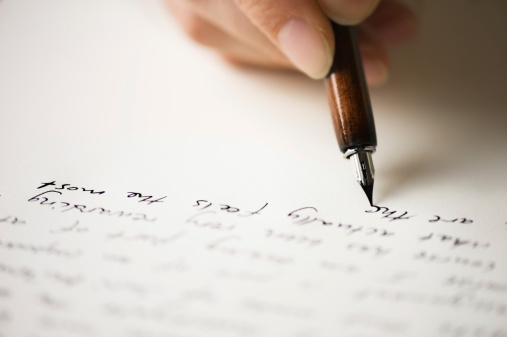Journaling writing is a powerful tool for self-reflection and personal growth. It has been used for centuries as a way to capture innermost thoughts and feelings, and to explore the depths of the mind. In this blog post, we will explore the process of journaling writing, and the many ways it can be used to record personal insights and promote self-discovery. By the end of this post, you will have a better understanding of the power of journaling writing and how to apply it in your own life.
What is Journaling writing?
Journaling writing is the practice of recording personal insights and experiences in a written format. It can take the form of a daily diary, a regular notebook, or even a specific type of journal. The aim is to capture one’s thoughts and feelings to gain greater self-understanding, work through problems, and explore life events in an organized manner.
Journaling can be a powerful tool for personal growth and development. It allows you to reflect on your life, record your thoughts and feelings, and gain new perspectives. Writing down your feelings and ideas can help you sort out your thoughts and make sense of difficult experiences. Journaling can also be used to set goals, create plans, and develop creative solutions to challenges. Additionally, it’s a great way to process emotions, work through trauma, and promote self-care.
Why Journaling writing is important?
Journaling writing can be a powerful tool for mental and emotional well-being. It gives you a chance to explore your thoughts and feelings, as well as helps you to gain clarity and perspective on difficult situations or decisions. It’s also a great way to track progress over time, as you can look back over what you’ve written to get an idea of how your thinking has changed.
By taking the time to write out your thoughts and feelings, you can better process them and become more aware of the patterns in your thinking. This can help you identify any negative thought patterns, challenge them, and ultimately make changes that improve your life. Journaling writing also helps to boost your creativity and imagination. By taking the time to write down ideas and creative solutions to problems, you can free up mental space and focus on coming up with new ways to approach challenges or obstacles.
Finally, Journaling writing is a great way to reduce stress. Taking time out of your day to sit down and focus on your thoughts and feelings can be incredibly calming and relaxing. By focusing on yourself and acknowledging your own needs, you can begin to take better care of yourself and be less overwhelmed by external pressures. Overall, journaling can be an incredibly valuable tool for self-discovery, self-care, and personal growth. With its many benefits, journaling is something everyone should consider trying out.
How to get started with journaling
Getting started with Journaling writing can feel intimidating, especially if you’re new to it. But don’t worry—it doesn’t have to be difficult! Here are some tips to help you get started:
1. Start simple – You don’t need any special tools or supplies to start journaling. All you need is a pen and paper. Start by writing down whatever comes to mind. Don’t worry about grammar, spelling, or structure—just write.
2. Find your style – Journaling doesn’t have to look the same for everyone. Find the style that works best for you. For example, you might prefer to write in long-form paragraphs, or maybe you prefer writing bullet points.
3. Set a regular time – To make Journaling writing a habit, set aside a specific time each day or week to do it. Make it a priority by scheduling it into your calendar and sticking to it.
4. Find a comfortable spot – Find a spot that is comfortable and quiet where you can write undisturbed. This could be your bedroom, living room, kitchen table, or even a park bench.
5. Don’t judge yourself – Remember that journaling is all about expressing yourself honestly and openly. So don’t worry about what you’re writing or how it looks—just let it flow naturally.
6. Have fun – Above all else, remember to have fun with it. Journaling is an opportunity to explore your thoughts and feelings safely and creatively, so don’t take it too seriously.
By following these tips, you’ll be well on your way to making journaling a regular part of your life. Good luck!
What to write about in your journal
Journaling is a personal activity that can be used to document and reflect on life events, emotional states, physical sensations, thoughts, and ideas. Therefore, the topics you choose to write about in your journal can be anything from the mundane to the profound. It is up to you to decide what you want to record in your journal.
One of the benefits of Journaling writing is that it allows you to explore your thoughts and feelings without judgment or consequence. You may find yourself writing about things you wouldn’t usually talk about with other people. This can give you an outlet to express yourself and work through difficult emotions. Some topics you may want to consider writing about in your journal include:
– Your hopes and dreams
– Your worries and fears
– Your successes and failures
– Your goals and objectives
– Your relationships with family, friends, and significant others
– Experiences that bring you joy or make you feel grateful
– Changes you want to make in your life
– Everyday observations or encounters with people or nature
– Reflections on books or films you’ve seen
– Anything else that strikes you as interesting or important
In conclusion, the topics you choose to write about in your journal are entirely up to you. Journaling writing can be a great way to process experiences, express emotions, and explore creative ideas. Use your journal as an opportunity to explore and express yourself however you wish.
How often to journal
The frequency of Journaling writing is completely up to you. Some people write in their journals daily, while others prefer to write every few days or once a week. You may even choose to journal only on special occasions or when big life events occur. Ultimately, it’s important to find a routine that works for you and your lifestyle.
If you’re having trouble getting into the habit of writing, you may want to start by setting yourself a goal to journal at least once a week. That way, you can begin to develop a rhythm without feeling overwhelmed. As you become more comfortable with the process, you can increase the frequency of your journaling.
Remember that there is no right or wrong answer when it comes to how often you should journal. If you find that writing daily helps you to express yourself, then make it a priority to keep up with that routine. But if weekly or monthly journaling works better for you, then stick with that. The important thing is to stay consistent so that journaling becomes a part of your regular self-care practice.
Conclusion
Journaling writing is a great way to express your thoughts and feelings, while also helping you to make sense of the world around you. It can provide clarity and perspective, allowing you to better understand yourself and others. Journaling is also a great tool for setting goals, planning and reflecting on your journey. It can help you to stay focused on what is important in life, and to take steps towards achieving your dreams. No matter where you are in your life, journaling can be an invaluable tool for growth and self-improvement.










